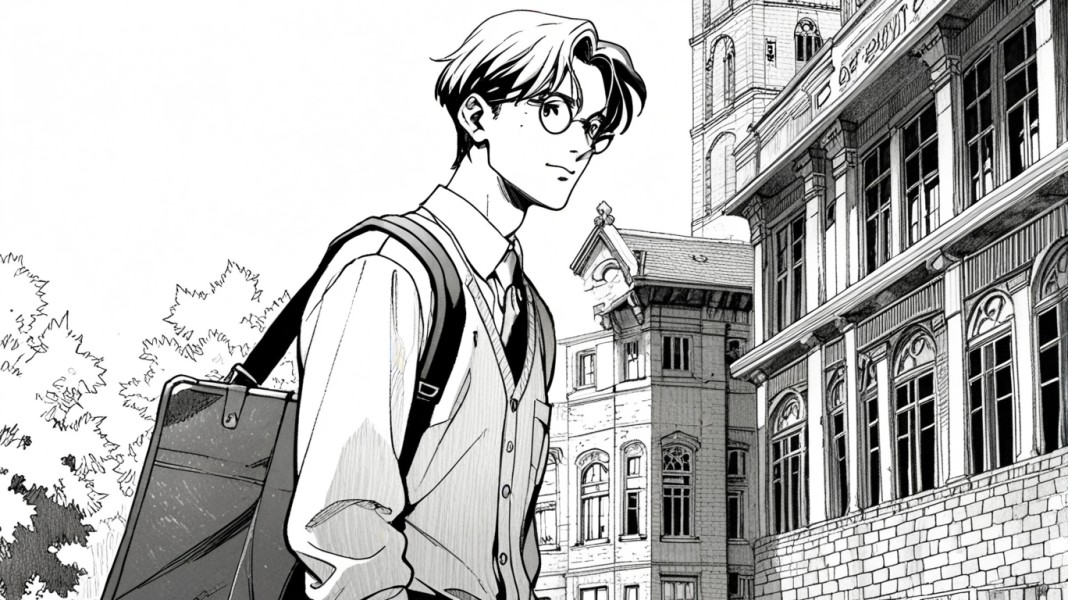 x
x
1954 - The Discovery
Ahmed was checking inventory at Ibrahim's fabric shop when a customer entered—a well-dressed man from Delhi on business.
"These silk patterns remind me of what my mother used to buy in Chandni Chowk," the man remarked.
Ahmed's heart skipped a beat. "You're from Delhi?"
"Yes, just visiting relatives here in Pakistan. Business is good across the border these days."
Ahmed couldn't help himself. "And the university? Delhi University—it still functions?"
"Of course! My daughter studies economics there. Though she says Professor Kapoor is not half the teacher that the legendary Mehta was."
Ahmed nearly dropped the ledger. "Mehta?"
"Harshad Mehta. Brilliant economist who died in '46. There's a small memorial plaque in the economics department. They say he was secretly working for independence when his plane crashed."
That night, Ahmed wept for the first time in years. He was remembered. His work had mattered. But he was a ghost from another lifetime.
The Dark Night of the Soul
For weeks, Ahmed wrestled with his identity. Should Harshad Mehta return from the dead? Would anyone believe him? Would he be welcomed in India or considered a traitor for living in Pakistan? Or worse, would old enemies—now perhaps in positions of power—seek revenge?
Fatima noticed his distress. "What troubles you, Ahmed?"
"I'm not who you think I am," he finally admitted. "My name... my true name is Harshad Mehta. I was a professor, a freedom fighter. I was supposed to die in that crash."
To his surprise, Fatima nodded. "I've suspected something like this for years. No simple bookkeeper speaks like you do or knows what you know."
"I should return to India," he said. "Reclaim my name."
"And what would that accomplish now?" she asked gently. "Would it bring you peace?"
The Finale
In early 1955, a letter arrived from India bearing official government stamps. Ahmed's hands trembled as he opened it.
Inside was a formal invitation to a ceremony honoring independence fighters on the upcoming Republic Day. Among those to be posthumously honored: Professor Harshad Mehta.
For three days, Ahmed barely ate or slept. On the fourth day, he made his decision.
He walked to the post office and sent a letter to the Indian government declining the invitation with a simple note: "Harshad Mehta's spirit rests in the free India he dreamed of. Let his memory serve the unity he fought for, not the divisions that followed."
That evening, he asked Fatima to marry him.
"Are you certain?" she asked. "What about your past, your real identity?"
Ahmed—who would forever remain Ahmed Khan in this new world—smiled and took her hand.
"Harshad Mehta died for a free India. Ahmed Khan lives in a world Harshad never imagined. Perhaps neither country became exactly what we fought for, but I've found my place. My identity isn't just a name—it's what I build with the life I have."
As the summer of 1955 approached, Ahmed Khan married Fatima in their small Pakistani village. At the ceremony, he wore a small pin with the colors of both the Indian and Pakistani flags intertwined—a private reminder of the unity he had once fought for and the divided peace he had come to accept.
His cat Kismat watched from a perch in the window, a living reminder that sometimes survival itself is its own form of revolution.
ns3.144.104.210da2





















